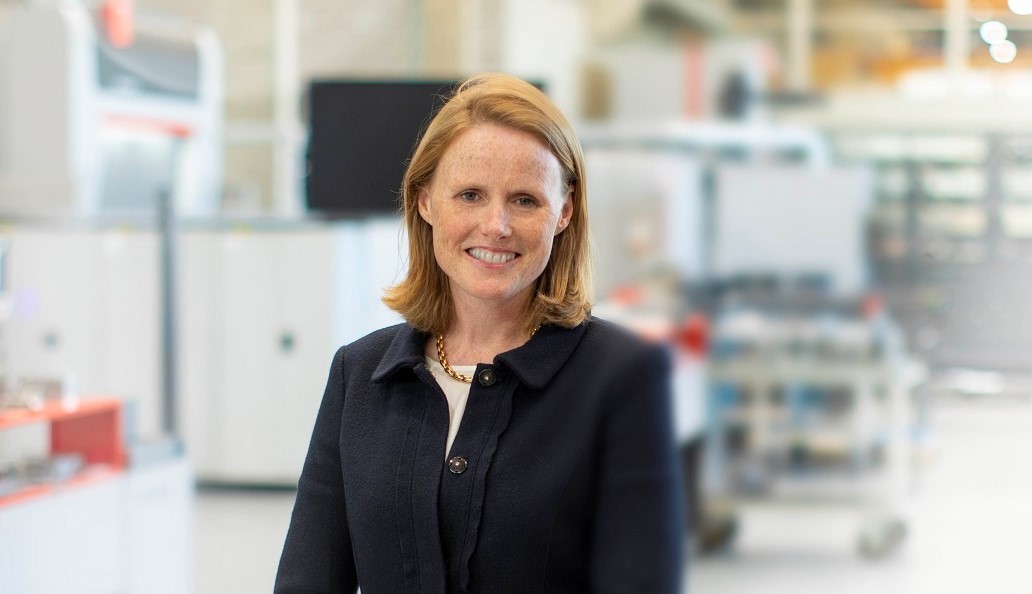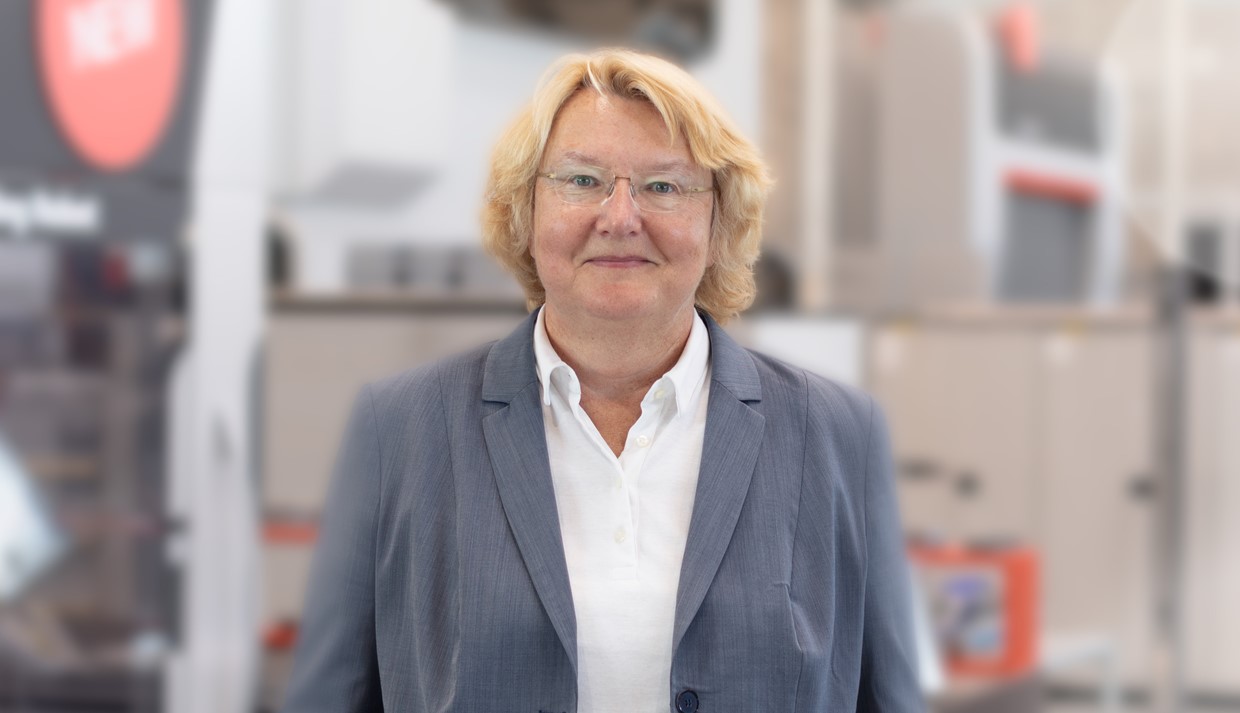3 Board of Directors
3.1 Members of the Board of Directors
According to Art. 14 of the Articles of Association, the Board of Directors of Bystronic AG consists of between five and eight members. On December 31, 2024, it was composed of the following eight members:
|
Name |
Function on the Board of Directors |
|
Function on the Audit Committee |
|
Function on the Human Resources Committee |
|
Year of appointment |
|
|
Dr. Heinz O. Baumgartner |
Chairman |
|
|
|
|
|
2021 |
|
|
Dr. Roland Abt |
Member |
|
Chairman |
|
|
|
2014 |
|
|
Dr. Matthias Auer |
Member |
|
Member |
|
|
|
1996 |
|
|
Inge Delobelle |
Member |
|
|
|
Member |
|
2022 |
|
|
Urs Riedener |
Member |
|
|
|
Chairman |
|
2014 |
|
|
Felix Schmidheiny |
Member |
|
Member |
|
|
|
2023 |
|
|
Robert F. Spoerry |
Member |
|
|
|
Member |
|
1996 |
|
|
Eva Zauke |
Member |
|
|
|
|
|
2023 |
|
Felix Schmidheiny was elected as a new member of the Audit Committee at the meeting of the Board of Directors on February 27, 2024.
3.2 Curriculum vitae, other activities and vested interests

Dr. Heinz O. Baumgartner
Dr. oec. HSG, born in 1963, a Swiss national, was Chief Executive Officer of Schweiter Technologies from 2008 to 2022 and has been a member of its Board of Directors since 2020 as well as Chairman since 2023. From 1996 to 2013, he was Chief Financial Officer of Schweiter Technologies. From 1992 to 1995, he was Controller at ABB Switzerland. Heinz O. Baumgartner is a member of the Board of Directors of the United Grinding Group. Further mandates are listed in section 7.1 of the Compensation Report.

Dr. Matthias Auer
Dr. iur., born in 1953, a Swiss national, has worked as an independent attorney and notary public in the Swiss canton of Glarus since 1981. Further mandates are listed in section 7.1 of the Compensation Report.

Urs Riedener
Lic. oec. HSG, born in 1965, a Swiss national, was Chief Executive Officer at Emmi, Lucerne, from 2008 until the end of 2022. Until 2008, he headed the marketing department and was a member of the General Directorate of the Federation of Migros Cooperatives MGB in Zurich. From 1992 until 2000, he worked for Kraft Jacobs Suchard and the Lindt & Sprüngli Group in various management roles. He is Chairman of the Board of Directors of the Emmi Group, a member of the Board of Directors of Sandoz Group AG, and a member of the Advisory Board of Schwarz Unternehmenstreuhand KG. In addition, he is a member of the Executive Committee of the Institute for Marketing and Customer Insight at the University of St. Gallen (HSG). Further mandates are listed in section 7.1 of the Compensation Report.

Robert F. Spoerry
Dipl. Masch.-Ing. ETH, MBA, born in 1955, a Swiss national, is Chairman of the Board of Directors of Sonova Holding AG, Stäfa. Up until the 2024 Annual General Meeting, he was also Chairman of the Board of Directors of Mettler-Toledo International Inc., which he also headed as CEO from 1993 to 2007.

Dr. Roland Abt
Dr. oec. HSG, born in 1957, a Swiss national, is a member of the Board of Directors of Swisscom AG, Bern, and Chairman of the Board of Directors of Aargau Verkehr AG (AVA), Aarau. Previously, between 2004 and 2017, he was Chief Financial Officer of Georg Fischer Ltd., Schaffhausen, which he joined in 1996, initially as Chief Financial Officer of the Agie Charmilles Group (1997 to 2004). He held various positions at the Eternit Group in Switzerland and Venezuela (1987 to 1996). Further mandates are listed in section 7.1 of the Compensation Report.

Inge Delobelle
Lic. oec. KU Leuven, born in 1969, a Belgian national, has been Executive Vice President and Divisional CEO Industry at Grundfos in Bjerringbro (Denmark) since 2024. Previously, she was Chief Executive Officer of the BU Europe Africa at TK Elevator GmbH, Düsseldorf, from 2018 to 2023. She joined the ThyssenKrupp Group in 2001 and held various management positions in the services, steel, and elevator divisions. Among others, as CFO and later as CEO, she was responsible for the steel service activities of TK Service Acier (France) and the global access solutions business of TK Elevator. Prior to 2001, she was an investment banking consultant with the Metzler private bank, Frankfurt, for seven years. Further mandates are listed in section 7.1 of the Compensation Report.
)
Felix Schmidheiny
Masterʼs degree in international business and law, born in 1984, a Swiss national, is a member of the Board of Directors of Plazza AG. Further mandates are listed in section 7.1 of the Compensation Report.
)
Eva Zauke
University degrees in computer science and business management, born in 1964, a German national, was Executive Vice President for Software Engineering at SAP SE and Engineering Location Lead for the SAP headquarters in Walldorf (Germany) until the end of 2024. Since joining SAP in 2005, she has held various leadership positions along the value chain (product management, engineering, go-to-market, education). Her professional career began at Deutsche Bahn, followed by several consulting and management positions at Oracle and the Deutsche Post DHL Group. Eva Zauke is currently participating in the Chief Technology Officer Program at the Massachusetts Institute of Technology. Further mandates are listed in section 7.1 of the Compensation Report.

Dr. Heinz O. Baumgartner
Dr. oec. HSG, born in 1963, a Swiss national, was Chief Executive Officer of Schweiter Technologies from 2008 to 2022 and has been a member of its Board of Directors since 2020 as well as Chairman since 2023. From 1996 to 2013, he was Chief Financial Officer of Schweiter Technologies. From 1992 to 1995, he was Controller at ABB Switzerland. Heinz O. Baumgartner is a member of the Board of Directors of the United Grinding Group. Further mandates are listed in section 7.1 of the Compensation Report.

Dr. Roland Abt
Dr. oec. HSG, born in 1957, a Swiss national, is a member of the Board of Directors of Swisscom AG, Bern, and Chairman of the Board of Directors of Aargau Verkehr AG (AVA), Aarau. Previously, between 2004 and 2017, he was Chief Financial Officer of Georg Fischer Ltd., Schaffhausen, which he joined in 1996, initially as Chief Financial Officer of the Agie Charmilles Group (1997 to 2004). He held various positions at the Eternit Group in Switzerland and Venezuela (1987 to 1996). Further mandates are listed in section 7.1 of the Compensation Report.

Dr. Matthias Auer
Dr. iur., born in 1953, a Swiss national, has worked as an independent attorney and notary public in the Swiss canton of Glarus since 1981. Further mandates are listed in section 7.1 of the Compensation Report.

Inge Delobelle
Lic. oec. KU Leuven, born in 1969, a Belgian national, has been Executive Vice President and Divisional CEO Industry at Grundfos in Bjerringbro (Denmark) since 2024. Previously, she was Chief Executive Officer of the BU Europe Africa at TK Elevator GmbH, Düsseldorf, from 2018 to 2023. She joined the ThyssenKrupp Group in 2001 and held various management positions in the services, steel, and elevator divisions. Among others, as CFO and later as CEO, she was responsible for the steel service activities of TK Service Acier (France) and the global access solutions business of TK Elevator. Prior to 2001, she was an investment banking consultant with the Metzler private bank, Frankfurt, for seven years. Further mandates are listed in section 7.1 of the Compensation Report.

Robert F. Spoerry
Dipl. Masch.-Ing. ETH, MBA, born in 1955, a Swiss national, is Chairman of the Board of Directors of Sonova Holding AG, Stäfa. Up until the 2024 Annual General Meeting, he was also Chairman of the Board of Directors of Mettler-Toledo International Inc., which he also headed as CEO from 1993 to 2007.

Urs Riedener
Lic. oec. HSG, born in 1965, a Swiss national, was Chief Executive Officer at Emmi, Lucerne, from 2008 until the end of 2022. Until 2008, he headed the marketing department and was a member of the General Directorate of the Federation of Migros Cooperatives MGB in Zurich. From 1992 until 2000, he worked for Kraft Jacobs Suchard and the Lindt & Sprüngli Group in various management roles. He is Chairman of the Board of Directors of the Emmi Group, a member of the Board of Directors of Sandoz Group AG, and a member of the Advisory Board of Schwarz Unternehmenstreuhand KG. In addition, he is a member of the Executive Committee of the Institute for Marketing and Customer Insight at the University of St. Gallen (HSG). Further mandates are listed in section 7.1 of the Compensation Report.
)
Felix Schmidheiny
Masterʼs degree in international business and law, born in 1984, a Swiss national, is a member of the Board of Directors of Plazza AG. Further mandates are listed in section 7.1 of the Compensation Report.
)
Eva Zauke
University degrees in computer science and business management, born in 1964, a German national, was Executive Vice President for Software Engineering at SAP SE and Engineering Location Lead for the SAP headquarters in Walldorf (Germany) until the end of 2024. Since joining SAP in 2005, she has held various leadership positions along the value chain (product management, engineering, go-to-market, education). Her professional career began at Deutsche Bahn, followed by several consulting and management positions at Oracle and the Deutsche Post DHL Group. Eva Zauke is currently participating in the Chief Technology Officer Program at the Massachusetts Institute of Technology. Further mandates are listed in section 7.1 of the Compensation Report.
No member of the Board of Directors has worked in an executive role for Bystronic within the last four years and no member and no enterprise or organization represented by the members has any significant business relationship with the Group other than the status of a shareholder (see Financial Report, notes to the financial statements of Bystronic AG).
When filling future vacancies, attention will continue to be paid to ensuring that the Board has a diverse composition in terms of experience, industry know-how, geographical origin, and gender.
3.3 Rules contained in the Articles of Association Regarding the Number of Permitted Roles
According to Art. 28 of the Articles of Association of the company, no member of the Board of Directors may accept more than ten additional mandates, including no more than four in listed companies. These restrictions do not apply to:
- Mandates in companies controlled by the company or that control the company.
- Mandates taken up by a member of the Board of Directors on the instructions of the company; no member of the Board of Directors may accept more than ten such appointments.
- Mandates in associations, charitable foundations, and pension foundations; no member of the Board of Directors may accept more than ten such appointments.
Mandates include appointments in the highest management body, executive management, or on the advisory board of another company with economic purpose. Mandates in different legal entities under joint control or with the same economic beneficiary are regarded as a single mandate.
3.4 Elections and terms of office
The date of first election to the Board of Directors of each member is listed in the table under section 3.1 Members of the Board of Directors. There are no limitations on the term of office. The Articles of Association do not contain any rules concerning the appointment of the Chairman, the members of the Compensation Committee, and the independent proxy that deviate from those prescribed by law.
3.5 Organization and definition of areas of responsibility
The powers and tasks of the Board of Directors are determined by law and the Articles of Association along with the Organizational Regulations of Bystronic AG. These can be found on the companyʼs website, but not including the annexes.
Board of Directors
The Board of Directors of Bystronic AG bears responsibility for the overall management, supervision, and control of the Group and its management, and monitors compliance with the applicable legal provisions. It decides on the strategic targets of the Group and the financial and human resources necessary to achieve the targets. In doing so, the Board of Directors reviews strategy and targets, particularly in the context of Bystronicʼs sustainability endeavors (ESG). In addition, the Board of Directors determines the values and standards of the Group and ensures that the duties towards shareholders and other stakeholders are complied with. Specifically, the Board of Directors is vested with the following tasks in particular:
- Overall management of the company and the setting of targets relating to corporate policy and culture; approval of the Group strategy and the strategic priorities of the individual business units.
- Approval of the strategic and financial targets.
- Risk assessment for the Group.
- Decisions on the creation of new business units or the discontinuation of existing business units; approval of significant acquisitions, mergers, sales, or individual projects.
- Adoption of resolutions relating to contracts under which Bystronic AG acts as a party to mergers, spin-offs, transformations, or transfers of assets under the Mergers Act.
- The structuring of the accounting, financial control, and financial planning and the structuring of a comprehensive reporting system in line with the strategy.
- Approval of the applicable accounting standards, the framework for financial control, and the internal control system along with any significant changes to the same.
- Annual assessment and approval of the budget and strategic financial planning.
- Review and approval of the (Annual and Half-Year) Financial Statements and reporting.
- Compilation of the Annual Report and the Compensation Report.
- Notification of the court in the event of overindebtedness.
- Monitoring of the liquidity and the solvency of the company.
- Determination of the organization and the issuance of Organizational Regulations for the Group.
- Review and approval of the management principles, Group guidelines, and the Group management structure.
- Overall supervision of the persons entrusted with managing the company, including to compliance with laws, the Articles of Association, and regulations, and the implementation of the resolutions of the Board of Directors and the General Meeting.
- Appointment and dismissal of members of the Executive Board.
- Calling of Annual General Meetings and extraordinary General Meetings.
- Adoption of resolutions on proposals presented to shareholders.
- Implementation of resolutions adopted by shareholders.
On the basis of the Organizational Regulations, the Board of Directors has delegated the operational management of business to the Executive Board under the leadership of the CEO. The members of the Executive Board are responsible for the comprehensive operational management of their fields. They manage them in accordance with the strategy approved by the Board of Directors, the strategic financial planning, and the annual budget.
Important transactions that exceed a certain financial threshold must be presented to the Board of Directors in advance for approval, such as in particular decisions concerning the incorporation or sale of subsidiaries, the acquisition or sale of equity interests, restructuring projects, investments, acquisitions, divestments, the purchase and sale of real estate, the conclusion of rental agreements and leases, consultancy contracts, cooperations and strategic partnerships, major projects (e.g. in the field of IT, development, and organization), and financial obligations, the threshold values for which lie between CHF 3 million and 10 million, depending on the transaction.
The Board of Directors is authorized to pass resolutions on all matters not delegated or reserved to the General Meeting.
The Board of Directors convenes as often as business requires, but no fewer than five times a year. The CEO, the CFO, and the General Counsel, who also serves as the Secretary to the Board of Directors, are included in meetings of the Board of Directors unless decided otherwise by the Board of Directors in relation to individual agenda items. In addition, members of the Executive Board and other executives including on an occasional basis external consultants are involved for specific topics. In the reporting year, no representatives of external consultants were invited to meetings.
Chairman of the Board of Directors
The Chairman of the Board of Directors is elected by the Annual General Meeting. He coordinates the work of the Board of Directors, issues invitations to the meetings of the Board of Directors, determines the agenda, prepares the meetings together with the CEO, and chairs the meetings. He monitors the implementation of resolutions of the Board of Directors and the General Meeting.
Cooperation between the Board of Directors and its Committees
The Board of Directors may establish committees, unless such a right is vested by law in the General Meeting. It has established an Audit Committee with tasks relating to finances and auditing and a Human Resources Committee with tasks relating to personnel and remuneration.
Subject to legal provisions, the Board of Directors determines the duties of the committees. The overall responsibility for the tasks transferred to the committees remains with the Board of Directors. However, if the Board of Directors has granted a committee decision-making powers in areas that lie outside the non-transferable powers of the Board of Directors, the committee concerned bears sole responsibility for such decisions. Ordinarily, no specific decision-making responsibilities are transferred to the committees. They, thus, bear responsibility for the preparation of decision-making and the detailed examination of the matters they are to handle, and they submit proposals to the Board of Directors or inform the Board of Directors of their conclusions. The Human Resources Committee and the Audit Committee report on their activities, their results and proposals at the next Board of Directors meeting. The Board of Directors is informed immediately of important events. Minutes are taken on the meetings of the committees and their decisions, which are also presented to the other members of the Board of Directors.
Human Resources Committee
The Human Resources Committee consists of those members of the Compensation Committee appointed to the task in the course of the Annual General Meeting held on April 17, 2024; see section 3.1 “Members of the Board of Directors.” In addition to its members, the Chairman of the Board of Directors, the CEO, and the Chief HR Officer of the Group generally also participate in meetings of the Human Resources Committee in an advisory capacity, albeit, in the case of the latter two, not when it comes to the determination of their own salaries.
In addition to the tasks outlined in a general manner in Art. 21 of Bystronic AGʼs Articles of Association, the Compensation Committee, acting in its capacity as the Human Resources Committee, executes additional tasks. Its tasks, which are described in the Organizational Regulations, essentially comprise the following:
- Proposals to the Board of Directors concerning rules for the compensation of the Board of Directors and the Executive Board.
- Examination of all compensation as to its permissibility.
- Recommendations to the Board of Directors concerning proposals to the Annual General Meeting on compensation.
- Proposals to the Board of Directors concerning the annual compensation of the members of the Board of Directors, the CEO, and the other members of the Executive Board.
- Preparation of the Compensation Report and discussion of the report with the auditors; proposals to the Board of Directors.
- Assessment of share and option plans in addition to bonus plans and other performance-related compensation, with regard to compliance with the relevant provisions of the Articles of Association and the payment of variable remuneration in cash or as options and shares to members of the Board of Directors and the Executive Board; proposals to the Board of Directors.
- Proposals to the Board of Directors concerning the definition of the principles applicable to the selection procedure for candidates for election to the Board of Directors or the Executive Board and preparation of a candidate shortlist.
- Preparation of medium- to long-term succession planning for members of the Board of Directors and members of the Executive Board.
- Recommendations concerning nominations of members of the Executive Board for the attention of the Board of Directors.
- Monitoring of diversity across all management levels within the Group, focusing specifically on the promotion of female leaders to management and Executive Board levels as well as future Board mandates.
- Monitoring of training and personnel development measures.
- Assessment and promotion of management staff and internal talent.
- Assessment of staff retirement benefits.
- Recommendations, where applicable, and monitoring of compliance with Group objectives in relation to personnel.
- Responsibility for the rules relating to permitted external mandates of Executive Board members; presentation of relevant proposals to the Board of Directors.
The Human Resources Committee convenes at least twice a year.
Additional details can be found in the activity report of the Human Resources Committee (Human Resources Committee Report).
Audit Committee
In addition to its members (see section 3.1 Members of the Board of Directors), the Chairman of the Board of Directors, the CEO, and the CFO generally also attend the meetings of the Audit Committee in an advisory capacity. Upon invitation by the Chairman, the companyʼs external auditors and internal auditors may also attend meetings or participate in the deliberations on individual items on the agenda. The essential tasks of the Audit Committee are described in the Organizational Regulations. They include in particular:
- Review and proposal to the Board of Directors concerning the organization of the accounting, financial control, and financial planning systems.
- Critical analysis of individual company and Group Financial Statements (Annual and Half-Year Financial Statements); discussion of these Financial Statements with the CFO and the external auditors; presentation of proposals to the Board of Directors concerning these Financial Statements.
- Assessment of the efficacy and performance of the external auditors and their fee, as well as their independence; decisions regarding the granting of additional mandates to the external auditors other than the auditing mandate; preparation of the proposal of the Board of Directors to the General Meeting regarding the election of the external auditors; proposals to the Board of Directors concerning the structure of the auditing mandate; assessment of the reports of external auditors (in particular the audit report and the comprehensive report pursuant to Art. 728b CO) and the discussion of these reports with the external auditors.
- Assessment of the functional capability of the internal control system, taking into account risk management, compliance, and internal auditing; discussion and definition of the audit program for the internal auditors; acceptance of reports from internal auditors and discussion of these reports with the internal auditors; reporting to the Board of Directors.
- Approval of the method used for assessing acquisitions within the Group and individual assessment of major acquisitions for the attention of the Board of Directors.
- Assessment of pension plans and the associated risks.
- Assessment of further Group solutions relating to finance, such as treasury, taxation, and dividend payments by the direct subsidiaries of Bystronic AG, etc.
- Assessment of initiatives by the Board of Directors relating to finance and accounting, such as the achievement of specific financial targets and key performance indicators (KPI); reporting to the Board of Directors on the fulfillment of targets.
- Preparation of reporting in the area of ESG (Environmental, Social, Governance); proposals to the Board of Directors.
The Audit Committee meets upon invitation by its Chairman as often as required by business, but no less than three times a year. At its meetings, it deliberates, among other things, any annually recurring issues in accordance with the description of tasks provided above and on the basis of a standard agenda. Additional information can be found in the activity report of the Audit Committee (Report of the Audit Committee).
Meetings of the Board of Directors and attendance
The Board of Directors and its committees hold regular meetings. These can be supplemented by additional meetings (in person or via video/telephone conference call). The meetings of the Board of Directors are called by the Chairman or at the request of a member of the Board of Directors. An outline of the various agenda items for each meeting is sent to all members in advance so that they can consider the matters to be discussed prior to the meeting.
At the meetings of the Board of Directors, a closed session is generally held, excluding the CEO and CFO or any other persons. Minutes of the Board of Directorsʼ deliberations and the adopted resolutions are kept in writing.
The following table shows the number of meetings of the Board of Directors and its regular committees held in 2024, the average duration of the meetings, and the attendance of the individual members of the Board of Directors.
|
|
Prior to the 2024 AGM |
|
|
|
After the 2024 AGM |
|
|
|
|
|
Meetings of the Board of Directors and attendance |
Meeting |
Video conference |
Audit Committee |
Human Resources Committee |
Meeting |
Video conference |
Audit Committee |
Human Resources Committee |
|
|
Average duration (hours) |
4.6 |
0.5 |
3.5 |
3.0 |
5.4 |
- |
2.3 |
3.0 |
|
|
Number of meetings |
2 |
1 |
1 |
2 |
5 |
- |
5 |
3 |
|
|
Meetings attended |
|
|
|
|
|
|
|
|
|
|
Dr. Heinz O. Baumgartner |
2 |
1 |
1 |
2 |
5 |
- |
3 |
3 |
|
|
Dr. Roland Abt |
2 |
1 |
1 |
- |
5 |
- |
5 |
- |
|
|
Dr. Matthias Auer |
1 |
- |
1 |
- |
5 |
- |
5 |
- |
|
|
Inge Delobelle |
2 |
1 |
- |
2 |
5 |
- |
- |
3 |
|
|
Urs Riedener |
2 |
1 |
- |
2 |
5 |
- |
- |
3 |
|
|
Felix Schmidheiny |
1 |
1 |
- |
- |
5 |
- |
5 |
- |
|
|
Robert F. Spoerry |
2 |
1 |
- |
2 |
5 |
- |
- |
3 |
|
|
Eva Zauke |
1 |
1 |
- |
- |
5 |
- |
- |
- |
|
3.6 Information and control instruments for the Executive Board
Bystronic has a sophisticated planning and information system. It is built from the bottom up with increasing consolidation.
The Board of Directors is informed in writing and orally of the strategies, plans, and results of the company. The Board of Directors receives a consolidated monthly statement outlining the key figures and commentaries on the relevant occurrences. In addition, the Board of Directors has access to the more detailed quarterly reports on the consolidated accounts for the Group. Each year, the Board of Directors is presented with the strategic financial planning and the annual operational plans for approval.
At each meeting, the CEO informs the Board of Directors of the current business performance along with important developments, projects, and risks. In urgent cases, the Board of Directors is informed immediately.
In the reporting year, in addition to regular periodic deliberations on business development, the Board of Directors focused on other topics, such as:
- The CEO succession plan
- The cost optimization program
- DNE Global strategy
- The development of market shares and activities
- Sustainability
- Risk assessment for 2024
- The new organizational structure and restructuring
- The use of liquidity
- Smart Factory updates
- The expansion of Automation in Switzerland
Bystronic applies methodological processes which the Board of Directors uses as a basis for assessing the business outlook and strategic, financial, and operational risks. Alongside the financial reports and analyses, these constitute the internal control system and strategic and operational risk management. The Board of Directors receives an annual report concerning the risk situation drawn up by the CEO in consultation with the CFO and the General Counsel. This report is based on individual risk analyses conducted with each member of the Executive Board, and in 2024, the former Extended Executive Committee.
Please refer to section 3.7 Risk management for information on the risk management process. Each year, the Board of Directors also receives the management letter from the external auditors and the comprehensive report of the external auditors for the Board of Directors.
The internal audit was undertaken by the auditing company Deloitte in previous years, and as of this financial year by EY. The internal auditors perform the internal operational audit function within the Group and report to the Chairman of the Audit Committee. The coordination of the implementation of audit tasks has been delegated to the CFO. The internal auditors carry out audits within the Group in accordance with the audit plan proposed by the Audit Committee and approved by the Board of Directors. The audits cover the following topics on a rolling basis:
- Effectiveness of selected operational processes at the Group level and of selected Group companies
- Effectiveness of governance and risk management guidelines and processes
- Effectiveness of internal control processes
- Reliability and comprehensiveness of financial and operational information
- Compliance with legal, statutory, and internal regulations
The internal auditors draw up reports containing recommendations for the local management and the Audit Committee. The local management states its position regarding the recommendations and, where it agrees with the recommendations, promptly implements corrective measures. If the local management rejects a recommendation whilst the internal auditors and the CEO wish to pursue it, it is implemented on the instructions of the Audit Committee. During the reporting year, four internal inspections were conducted by EY. The internal auditors attended three out of the six meetings of the Audit Committee.
Please refer to Section 3.5 for details regarding the CEO and the CFOʼs attendance of meetings of the committees of the Board of Directors.
3.7 Risk management
Bystronic promotes an entrepreneurial mindset and a systematic focus on innovation and sustainable value for the customer, while carefully managing risks, fully complying with the binding rules set out in the Code of Conduct, and taking appropriate account of the interests of all stakeholders. As is the case every year, the internal audit program was implemented in the reporting year.
In 2024, the Board of Directors again undertook an integral Group-wide risk assessment based on management reporting and the separate Group Risk Report, which covers the risk assessment process and the most significant risks. The risk management process, which has been implemented throughout the Group, encompasses the identification, evaluation, and qualitative appraisal of operational, financial, and strategic risks. It is combined with risk monitoring, action plans, and standardized reporting.
In the reporting year, the following risks in particular had priority at the Group level:
- Competitiveness: competition from low-cost suppliers in China, challenges of transforming from a vendor of individual machines to a provider of complex solutions
- IT security/data protection: risk of cyberattacks against Bystronic and its customers, ransomware attacks, protection of customer data, and compliance with data protection regulations.
- Software: challenges in the scalability of new software solutions.
- Employees: competition to recruit and retain talent, declining employee engagement.
- Decoupling United States/China: deterioration of the economic relations between the US and China with the resulting increase in state control and regulation.
- Recession: high interest rate environment, election year in the US.
- Supply chains: difficulties in procuring raw materials, components and transport capacities, dependence on individual suppliers.
In addition, other topics are systematically taken into account at the Group level and at the level of the country subsidiaries, in particular with regard to environmental, social, and governance (ESG) issues.


